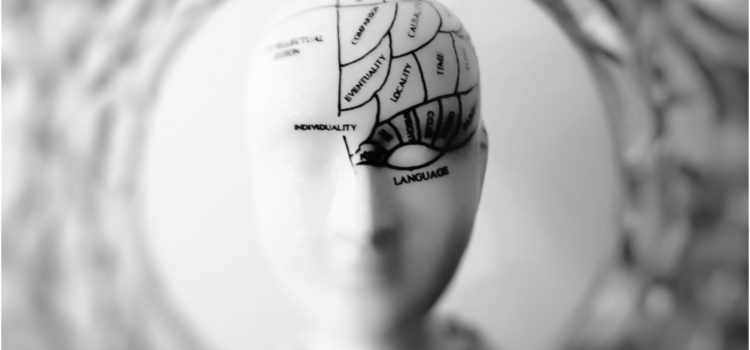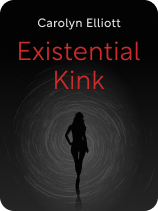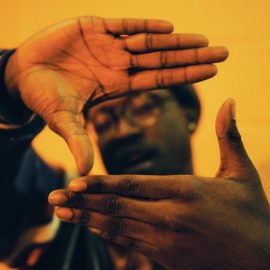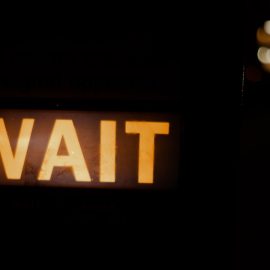

This article is an excerpt from the Shortform book guide to "Existential Kink" by Carolyn Elliott. Shortform has the world's best summaries and analyses of books you should be reading.
Like this article? Sign up for a free trial here.
What’s the difference between the conscious and unconscious mind? Can they be united?
Your conscious mind comprises the feelings, thoughts, and memories that you’re aware of. Your unconscious mind is everything that you’re currently unaware of. Existential Kink by Carolyn Elliott says that, to become a whole being, you need to unite both the conscious and unconscious mind.
Keep reading to learn how to be in touch with your whole self and take control of your life.
Uniting the Conscious and Unconscious Mind
Elliott bases many of her ideas of the conscious and unconscious mind on the work of Carl Jung, who established the idea that our conscious minds, or our egos, comprise only a tiny fraction of who we actually are. The rest of our selves exist in the unconscious.
(Shortform note: Jung’s theories have faced considerable criticism due to their lack of empirical evidence making it impossible to prove his ideas wrong. Elliott’s ideas are similarly theoretical and are founded largely in her personal experiences and observations.)
Our conscious minds make choices based on polarities (such as light and dark, wealth and poverty, strength and weakness), and specifically, based on the side of each polarity that aligns with our identities. For example, we collectively view strength as a good thing and weakness as a bad thing, so we’re encouraged to seek to be and identify as strong. This leads us to consciously make decisions that we think make us feel or look stronger and avoid decisions that make us feel or look weak.
However, our world is made up of polar opposites: Both the good and the bad sides of anything or issue exist, like wealth and poverty, life and death, courage and fear, and so on. So by identifying with only one side and alienating ourselves from the other (for example, by seeking happiness and spurning sadness, or valuing control and devaluing helplessness) we divide our whole self, repressing the aspects of ourselves that we view as negative and shameful but which our unconscious is deeply curious about.
(Shortform note: Sigmund Freud went so far as to suggest that humans have a death drive, or an inherent desire to return to a state of nonexistence, which would seem to conflict with the idea that we evolved to seek survival. This death drive may be responsible for things like self-destructive behaviors or l’appel du vide (literally, “the call of the void”), a phenomenon wherein we have sudden thoughts of doing things like jumping from a deadly height for no apparent reason.)This repression leads us to exist in a divided state, seeking only the “positive” and trying to avoid the “negative” even though we secretly want to experience the negative, too. But the unconscious subtly attracts what it wants, and thus we attract things we’re not willing to admit we want (such as poverty, weakness, or sadness).
Because these desires to experience the negative won’t go away until we satisfy them, and we can’t satisfy a desire we won’t acknowledge, this unwillingness undermines our ability to attract the positive things we are willing to admit we want (or at least, that we know we’re supposed to want). This is how we end up watching negative patterns continue to play out in our lives.
While it may seem absurd that anyone would want to only be in relationships with controlling partners or constantly struggle to pay the bills, Elliott explains that, on an existential level, we desire wholeness, not division, and the positives in these situations—being in relationships with good partners or having no trouble paying the bills—is only one half of the whole. To become whole beings, we need to exist and revel in our repressed desires and take pleasure in them so we can satisfy them. This will ultimately loosen their hold on us so that we no longer desire the things that make our lives worse. Practicing existential kink is about embracing both sides of these polarities, becoming whole, and taking control of your fate.
(Shortform note: While Elliott suggests that satisfying your desires will make them less powerful or eliminate them entirely, other experts suggest that it’s not possible to fully satisfy all our desires because, once fulfilled, those desires are immediately replaced with new ones. In fact, neuroscientific research indicates that fulfilling our desires doesn’t actually make us happy and that we have an instinctual need to seek, one that isn’t satisfied even when we find what we think we’re seeking. However, the research also suggests that the act of seeking happiness itself is fulfilling, so part of becoming whole in the way Elliott describes may have more to do with reveling in the desire itself rather than aiming to satisfy the desire.)
Universal Desires and Their Polar Opposites
Some experts have theorized that there are 16 universal desires that motivate all human behavior, including the desire for things like power, acceptance, status, and tranquility. These would represent our conscious desires, but applying Elliott’s theory, we’re also motivated by the polar opposite of each of these desires, so examining these opposites during your own self-work may help you identify your unconscious desires.
For example, if you think you want status but find yourself unable to make a mark in your field or gain any notoriety, you should consider that your unconscious desire might be for obscurity. Using some of the 16 universal desires, here are some possible complementary repressed opposites you could be on the lookout for:
- Polarity #1: power (conscious desire) versus the desire to be submissive or passive (unconscious desire)
- Polarity #2: independence versus the desire to be reliant or contained
- Polarity #3: curiosity versus the desire to be blissfully ignorant and to avoid problems
- Polarity #4: acceptance versus the desire to be rejected or to feel lowly
- Polarity #5: order versus the desire for chaos or to be impulsive
- Polarity #6: saving versus the desire for scarcity
- Polarity #7: honor versus the desire to be viewed as depraved or evil
- Polarity #8: idealism versus the desire to see others suffer
- Polarity #9: social contact versus the desire to be excluded or isolated
- Polarity #10: family versus the desire to not be tied down by commitments to others
- Polarity #11: status versus the desire for obscurity or ignominy
- Polarity #12: vengeance versus the desire to feel like a victim or martyr
- Polarity #13: romance versus the desire to feel unlovable
- Polarity #14: eating versus the desire to experience hunger
- Polarity #15: physical exercise versus the desire to rest or to feel lazy
- Polarity #16: tranquility versus the desire for risk and danger
We feel comfortable accepting these 16 conscious desires as part of our identities because they’re considered positive things to strive for, but as we’ll see later in this guide, even such unconscious desires as wanting to see others suffer are universal, according to Elliott’s theory. These are the dark aspects of human nature that we have to embrace if we want to become whole.

———End of Preview———
Like what you just read? Read the rest of the world's best book summary and analysis of Carolyn Elliott's "Existential Kink" at Shortform.
Here's what you'll find in our full Existential Kink summary:
- That the negative patterns in our lives are manifestations of what we desire
- How to dissolve your negative desires so they lose hold over your life
- How to practice existential kink meditation






